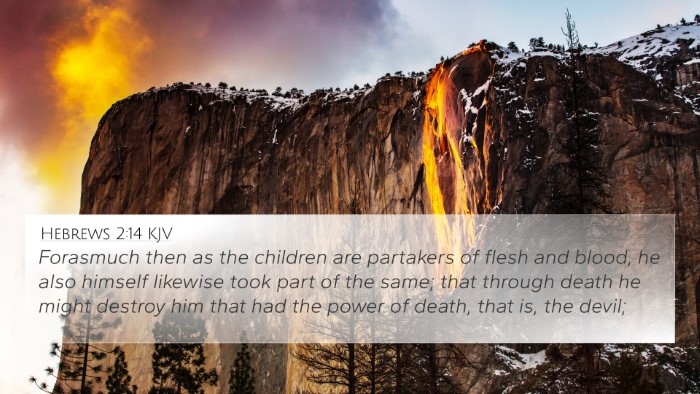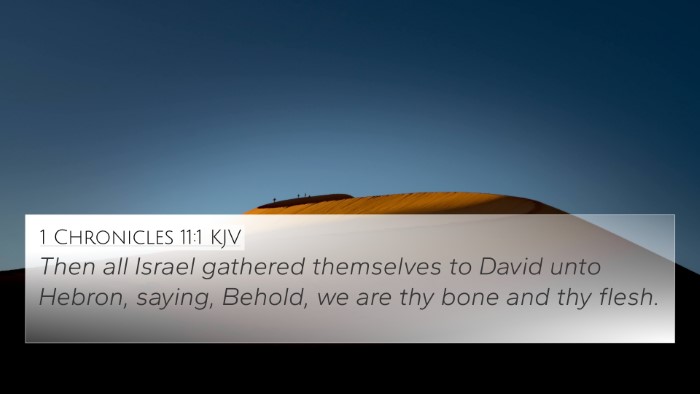Understanding Judges 9:2
The verse Judges 9:2 states, "Say to the ears of all the men of Shechem, 'Which is better for you, that all seventy of the sons of Jerubbaal rule over you, or that one rule over you?'" This verse is a significant moment in the narrative of Abimelech and the events following Gideon's judgeship.
Context and Analysis
This verse highlights Abimelech's challenge to the men of Shechem, presenting a choice that reflects political ambition and the dynamics of leadership within Israel's tribal society.
Matthew Henry's Commentary
According to Matthew Henry, this verse demonstrates Abimelech's scheming as he seeks to consolidate power. It reflects the notion that unity among the leaders (the 70 sons of Jerubbaal) could be beneficial for the community's well-being, but Abimelech argues that a single ruler would be more efficient. Henry emphasizes the implications of leadership and the dangers of divided authority.
Albert Barnes' Commentary
Albert Barnes interprets Judges 9:2 in the context of Abimelech's motivations, where he leverages his mother's connection to Shechem to stir loyalty. He notes the dangerous precedent of choosing a single ruler, which disregards the collective leadership established by the Judges. Barnes highlights the historical transition from a theocratic system to monarchical aspirations as pivotal to Israel's faithfulness to God.
Adam Clarke's Commentary
Adam Clarke provides insight into the implications of Abimelech’s statements, suggesting that his rhetorical questions aim to manipulate public opinion. He highlights the underlying tension between familial loyalty and societal stability. Clarke emphasizes the risk involved in selecting a ruler based on personal ties rather than divine appointment, reflecting on the societal consequences that ensue.
Thematic Bible Verse Connections
Judges 9:2 can be cross-referenced with several other scriptures that explore themes of leadership, governance, and fidelity to God’s direction. Below are some relevant cross-references:
- 1 Samuel 8:5 - The people of Israel demand a king, marking a shift from theocratic rule.
- 1 Kings 12:4 - The request for lighter burdens parallels Abimelech's proposal for singular leadership.
- Judges 8:23 - Gideon's refusal to rule foreshadows the issue of rightful authority.
- Proverbs 29:2 - Righteous rulers bring stability, a contrast to Abimelech’s unsound governance.
- Matthew 20:25-26 - Jesus' teachings on leadership elevate service over authority, opposing Abimelech's tactics.
- Acts 5:29 - The principle of obeying God rather than men resonates with Israel's desire for self-directed governance.
- Romans 13:1 - Apostolic teachings on authority further elucidate the divine order of leadership.
Cross-Referencing Bible Study Tools
For those interested in exploring the connections among Bible verses, utilizing tools for Bible cross-referencing can greatly enhance understanding:
- Bible concordance: An essential resource for locating verses related to specific themes.
- Bible cross-reference guide: Helps identify parallel scriptures across both Testaments.
- Cross-reference Bible study methods: Effective ways to approach thematic studies.
Conclusion
Judges 9:2 serves as a foundational verse reflecting the complexities of leadership, societal structure, and the impending consequences of forsaking God’s intended order. Through cross-referencing and thematic connections, readers can gain deeper insights into how this verse, and its implications, thread through the larger narrative of scripture, reinforcing the idea that God's plans often conflict with human ambitions.
Further Study
For those looking to deepen their understanding of this verse, consider exploring:
- How to find cross-references in the Bible by using a comprehensive Bible cross-reference system.
- Identifying connections between Old and New Testament themes regarding leadership.
- Comparative analysis of Biblical leadership examples such as Gideon and Jesus.








